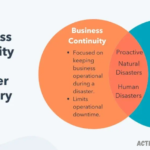Donald Trump’s stance on the Ukraine war and U.S. support for Kyiv became unequivocally clear on Wednesday, leaving little room for doubt. In sharp criticism of Ukrainian President Volodymyr Zelensky, who was once hailed as a hero in the U.S. Congress for his resilience against Russia’s invasion, Trump labeled Zelensky a “dictator” and accused him of corruption. The former president claimed that Zelensky was intent on maintaining the “gravy train” of foreign aid, a statement he made just a day after suggesting Ukraine, rather than Russia, was responsible for starting the conflict.
Trump further warned Zelensky to act quickly, or he might lose control of his country entirely. This rhetoric comes less than a week after Trump held a lengthy phone conversation with Russian President Vladimir Putin, during which he seemed to adopt the Kremlin’s narrative on the war and Ukraine’s leadership.
Russian Ambassador to the UK, Andrei Kelin, praised the Trump administration’s past approach, noting that the U.S. was no longer dismissing Russian views as mere propaganda. “For the first time, we have noticed that they [the U.S.] are not simply saying this is Russian disinformation,” Kelin told BBC Newsnight.
This shift in U.S. foreign policy, though striking, is not entirely unexpected. Trump has been signaling a more critical stance toward Ukraine and its leadership for some time, suggesting that his position on the conflict has been evolving for years.
Trump Slams Zelensky, Accuses Him of Corruption
Trump, who has long been critical of U.S. foreign aid and interventions abroad, attacked Zelensky as a “dictator” and accused him of corruption. This rhetoric marks a striking departure from the bipartisan consensus in Washington that has supported Ukraine’s defense against Russia’s brutal invasion. In his statement, Trump suggested that Zelensky’s leadership was primarily motivated by a desire to “keep the gravy train” of foreign aid flowing, a comment that comes just one day after Trump appeared to place blame for the war not on Russia, but on Ukraine.
A Dire Warning for Zelensky
The former president further warned that Zelensky needed to “move fast, or he is not going to have a country left.” This dire prediction reflected Trump’s view that Ukraine could be on the brink of collapse unless swift changes are made—a sentiment that closely mirrors Moscow’s messaging.
Trump’s Conversation with Putin and Its Implications
This latest rhetoric from Trump comes just days after a lengthy phone conversation he had with Russian President Vladimir Putin. In the conversation, Trump expressed admiration for Putin’s leadership, adding fuel to concerns that the former president’s foreign policy could favor Russian interests should he return to office. Critics argue that his remarks regarding Zelensky and Ukraine suggest a deeper alignment with Putin’s narrative of the war, which portrays Ukraine as the aggressor and blames Western support for escalating the conflict.
Concerns Over U.S. Foreign Policy
Trump’s comments have raised significant alarm among U.S. allies and critics, many of whom fear that such statements could weaken international resolve against Russian aggression. For years, Ukraine has received substantial military and financial support from the U.S. and NATO as part of a broader strategy to contain Russian expansionism. Trump’s rhetoric, however, signals that if he were to regain the presidency, U.S. policy on Ukraine could undergo a drastic overhaul.
Russia’s Approval of Trump’s Stance
Russian officials have praised Trump’s stance. Andrei Kelin, Russia’s ambassador to the UK, noted that the Trump administration’s approach to Ukraine was far more aligned with Russia’s perspective. “For the first time, we have noticed that they [the U.S.] are not simply saying this is Russian disinformation,” Kelin told BBC Newsnight. “They have listened and they hear what we’re saying.” This acknowledgment from Russian officials highlights the degree to which Trump’s comments have aligned with Kremlin narratives, raising questions about how U.S. foreign policy could shift under his leadership.
Trump’s Track Record on Ukraine
This is not the first time Trump has cast doubt on U.S. involvement in Ukraine. Throughout his presidency, he repeatedly questioned the wisdom of foreign entanglements, and his administration’s stance toward Ukraine was often seen as erratic. While Trump was initially supportive of providing Ukraine with some military assistance, he also sought to withhold crucial aid in 2019, an action that led to his impeachment over the Ukraine scandal. Despite this, Trump’s rhetoric on the war has softened considerably since leaving office, with his latest comments marking the most significant pivot in his views to date.
A Divided U.S. on Ukraine Support
For many in Washington, Trump’s latest remarks are seen as a dangerous turn that could embolden Putin and threaten the unity of NATO and the West. Leading figures from both sides of the political aisle have expressed concern that the U.S. must remain firmly committed to supporting Ukraine as it defends itself against Russia’s aggression. However, Trump’s growing popularity within the Republican Party suggests that his views on Ukraine may resonate with a significant portion of the electorate.
As the war in Ukraine continues to unfold, the U.S. faces a critical decision about its role in supporting Kyiv’s defense. Trump’s comments underscore a growing division within American politics on this issue, with some advocating for a more isolationist approach while others push for continued intervention to counter Russian expansionism. With the 2024 election on the horizon, Trump’s evolving position on Ukraine is likely to be a key point of contention in the debate over U.S. foreign policy.
Frequently Asked Questions
Why is Donald Trump’s stance on Ukraine surprising?
Trump’s recent remarks are surprising because they starkly contrast with longstanding U.S. foreign policy, which has been largely supportive of Ukraine’s defense against Russia. Trump has labeled Ukrainian President Zelensky a “dictator,” accused him of corruption, and suggested that Ukraine, rather than Russia, is to blame for the war. These views echo Russian government narratives, marking a significant departure from the typical U.S. stance.
What did Trump say about Ukrainian President Zelensky?
Trump described Zelensky as a “dictator” and accused him of corruption. He also suggested that Zelensky was primarily interested in maintaining the flow of foreign aid to Ukraine, referring to it as a “gravy train.” Additionally, Trump warned that Zelensky needed to act quickly, or he could lose control of his country, a sentiment that closely mirrors Russian propaganda.
How do Trump’s comments align with Russia’s position on Ukraine?
Trump’s rhetoric about Ukraine closely resembles the messaging coming from the Kremlin. Russian officials have long claimed that Ukraine provoked the war and that Western support is exacerbating the conflict. Trump’s comments about blaming Ukraine for the war and echoing concerns over foreign aid align with these Russian talking points, signaling a shift in his views that could favor Russian interests.
What did Russian officials say about Trump’s stance?
Russian Ambassador to the UK, Andrei Kelin, praised Trump’s approach to Ukraine, noting that for the first time, the U.S. was not simply dismissing Russian viewpoints as disinformation. Kelin highlighted that U.S. officials had “listened and heard” Russia’s position on the war, a comment that indicates a closer alignment between Trump’s rhetoric and the Kremlin’s narrative.
How does this shift impact U.S. foreign policy on Ukraine?
Trump’s comments signal a possible change in U.S. foreign policy if he were to return to office. The former president’s rhetoric suggests a more isolationist approach that could reduce U.S. support for Ukraine and challenge the broader Western strategy of opposing Russian aggression. This marks a departure from the bipartisan support that Ukraine has traditionally received in Washington.
Has Trump been critical of U.S. involvement in Ukraine before?
Yes, Trump has long expressed skepticism about U.S. foreign interventions, and his approach to Ukraine during his presidency was often inconsistent. While he did approve some military aid for Ukraine, he also sought to withhold critical assistance during the 2019 Ukraine scandal, which led to his impeachment. Trump’s latest remarks show a more profound shift toward questioning Ukraine’s role and Western support for its defense.
What effect might this have on the 2024 U.S. election?
Trump’s evolving position on Ukraine could become a significant point of debate in the 2024 election. His views are likely to resonate with a portion of the American electorate that favors an isolationist or non-interventionist foreign policy. However, his stance could also alienate those who believe that U.S. support for Ukraine is critical in countering Russian aggression. The debate could significantly influence voters’ perceptions of his foreign policy priorities.
Conclusion
Donald Trump’s recent comments on Ukraine represent a significant departure from the U.S. foreign policy stance that has long supported Ukraine’s defense against Russian aggression. By echoing Russian talking points and criticizing Ukrainian President Zelensky, Trump has raised concerns about the future direction of U.S. involvement in the conflict should he return to office. His remarks align more closely with Moscow’s narrative, casting doubt on U.S. support for Kyiv and signaling a potential shift toward an isolationist foreign policy.
This shift in Trump’s rhetoric is not entirely unexpected, given his long-standing skepticism of foreign interventions and criticism of U.S. foreign aid. However, the implications for international relations, particularly with NATO and Russia, are profound. Trump’s stance could weaken the resolve of Western allies and embolden Russia, undermining efforts to contain Russian expansionism in Europe.






